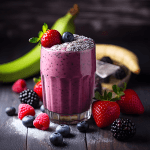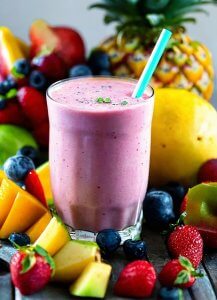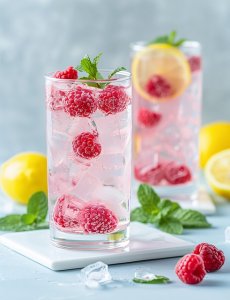Do you love smooth, supple, and tender-looking skin? Who doesn’t?
Though traditional skincare may help you get beautiful skin, it comes with a price in the form of many harmful chemicals that may cause severe health problems.
Contrarily organic skincare ingredients gently nourish your skin without any harmful side effects.
Some natural and organic skincare ingredients have been used for centuries and have stood the test of time. Going organic reduces skin irritation, saves money for the long run, and is beneficial to the environment.
Shirley Conlon, founder of SCO and an experienced cosmetic formulator, says, “Organic skincare ingredients and organic agriculture, in general, sustainably supports our natural ecosystem. They eliminate or at least reduce toxins from not only our skin but also the food chain, which is vital for health and overall well-being of the skin, the body, and the planet.”
If you’ve decided to go the organic route, whether it be, splurging on organic skincare brands or making home remedies from the treasures of your kitchen shelves. Here are some organic skincare ingredients to use in your beauty regimen.
7 organic skincare ingredients
#1. Coconut oil
Coconut oil is extracted from dried coconut kernels or coconuts. Applying coconut oil to your skin can keep it hydrated. In more hot and humid environments, coconut oil regulates and protects your skin as intended in its natural habitat.
Shirley says, “Coconut oil is a fantastic oil for body and hair but not always the right choice for the face. Always choose organic, virgin, cold-pressed to avail from the nutrients.”
The benefits of coconut oil are plenty. It hydrates, smoothes, and protects the skin. Coconut oil is excellent for your hair. It quickly penetrates hair strands and can even prevent protein loss.
Also, it helps tame frizz and adds shine to your hair. You can apply coconut oil as a hair mask to soften your locks. Just mix 3 to 5 tablespoons of refined organic coconut oil with 20 drops of rosemary oil. Massage it onto your hair and cover it with a shower cap. Allow it to sit for 30to 60 minutes and wash it off.
Coconut oil for the skin and body finds its use as a hydrating agent, massage oil, and body scrub. Applying coconut oil to your skin improves its hydration and helps preserve its function as a barrier, maintains overall skin integrity, and promotes the healing of scars.
When it comes to skin health, virgin coconut oil is better than refined coconut oil as virgin coconut oil has higher antioxidant status and an improved ability to fight free radicals.
#2. Seaweed
Since they grow in oceans blessed with abundant nutrients, seaweed has some powerful skin caring properties.
Seaweed offers plenty of skin benefits. It regulates oil production and diminishes the appearance of fine lines and wrinkles. Seaweeds like Laminaria Digitata are a rich source of lysine and antioxidants that promote collagen production, giving plumper and youthful-looking skin.
Seaweeds have anti-inflammatory properties and minerals like zinc and magnesium. Thus they help reduce inflammatory skin conditions such as acne and rosacea and improves the appearance of redness in sensitive skin.
Corallina Officinalis, a red seaweed, helps to remove dead and loose skin cells from the surface of your skin. Rich in polysaccharides such as alginic acid, these sea treasures help lock in moisture inside your skin, keeping your skin soft and supple.
While there are no side effects in using seaweeds, experts recommend spot-checking seaweed skincare products inside your arm if you have sensitive skin.
3. Matcha
Macha is an excellent all-around ingredient as its rich in antioxidants and beneficial plant compounds. It is obtained naturally from dried and crushed leaves of the Camellia sinensis plant.
The vibrant green color of Matcha is due to the presence of chlorophyll. Interestingly chlorophyll protects your skin from sun damage reducing photo-aging resulting in lesser wrinkles and sunspots.
Matcha also contains a compound epigallocatechin-3-gallate (EGCG) with antimicrobial and antibacterial properties that help with your acne-prone skin. EGCG enhances your skin’s suppleness and smoothness due to its property of rejuvenating skin cells and supporting skin structure.
Due to its high vitamin K content, Matcha reduces puffiness, dark under-eye circles, and skin inflammation as vitamin K promotes better blood circulation.
Here are some of the great ways to include Matcha in your beauty routine.
To treat acne-prone skin, mix one tablespoon of Matcha with two drops of lemongrass oil. This mixture helps kill acne-causing bacteria as well as heals existing scars.
For dry and dehydrated skin, mix equal amounts of Matcha and olive oil. This gentle face pack helps to soothe and revitalize your skin.
To make a pore cleansing mask, mix a couple of tablespoons of clay with half a teaspoon of Matcha and make a smooth mix by adding a tablespoon of water.
You can also use Matcha as a toner by mixing it with an essential oil and water and storing it in a spray bottle.
#4.Shea butter
Shea butter is extracted from the nuts of the shea tree. A native of South Africa has a beautiful ivory color, is solid at warm temperatures, has a high concentration of vitamins and fatty acids with an easy-to-spread consistency.
It’s a tree nut product but has a very low level of proteins that can trigger allergies and is safe to use on all skin types. It contains fatty acids such as linoleic, stearic, oleic, and palmitic acids, which get readily absorbed into your skin and rapidly moisturize your skin.
Since it gets fully absorbed into your skin, it won’t make your skin oily. Due to its anti-inflammatory property, shea butter makes cytokines, and other inflammatory cells slow down their production. This helps minimize the effects of irritation caused by environmental factors and inflammatory skin conditions.
Moreover, shea butter has antioxidant properties and antibacterial properties that help restore the natural balance of oils in your skin and prevent acne.
Triterpenes
It contains triterpenes naturally occurring compounds that help deactivate collagen fiber destruction resulting in plump, youthful-looking skin. Shea butter’s moisturizing and antioxidant properties work together to promote healthy cell regeneration.
Shea butter prevents scar tissue from reproducing instead encourages healthy cells to take their place. This action helps your skin heal, making it even and smooth. Likewise, this African treasure reduces photo-aging by boosting collagen production and boosting new cell generation.
The easiest way to apply shea butter is to use a product that contains it. Alternatively, you can also make your beauty mask by mixing one tablespoon of raw honey, one tablespoon of pure shea butter, and 3 to 4 drops of grapeseed oil.
Mix them well and apply them over your face, let it sit for 10 to 12 minutes, and clean your face gently with warm water.
#5. Aloe
Famously called the wonder plant, aloe is a short-stemmed shrub with excellent medicinal properties. It nourishes your body from the inside, improves digestion, and even boosts immunity.
If you’re a happy owner of an aloe plant (I am one), select a fat leaf, and cut it from the base. Using a sharp knife, slice open the leaf, remove the gel, and refrigerate it for a couple of days. Try the following recipe for healthy glowing skin.
To lighten age spots and treat freckles, add some lemon juice to a tablespoon of aloe gel and apply it to your face. Leave it for 10 minutes and wash it off.
Aloe vera helps to moisturize your skin. It unclogs the pores and softens your skin. Likewise, the excellent cooling and anti-inflammatory properties of aloe vera help soothe sunburn. Antioxidant vitamins C and E and the minerals present in aloe boost the healing process.
Aloe vera gel has anti-aging properties. The presence of beta carotene and the skin-nourishing vitamins plumps up the skin and fights blemishes and age lines. Aloe speeds up skin cell reproduction almost eight times and heals acne wounds and scars.
The antimicrobial properties of aloe gel treat pimples without harming your skin, and its antiseptic properties protect against bacterial growth. The presence of polysaccharides and gibberellins helps promote the development of new cells. Also, they help reduce redness and inflammation. Aloe works as an astringent reducing pore size and flushing out excess sebum, microbes, and dirt.
#6. Sea salt
Sea salt is a type of salt that comes after the evaporation of seawater. American Heart Association says sea salt is not processed or minimally processed and comes directly through seawater’s evaporation.
Dermatologists recommend salt baths for patients with psoriasis, eczema, and other skin conditions.
Shirley says, “Sea salt helps clean pores and balances oil production. High in minerals like magnesium, calcium, and potassium, it helps with acne, skin infections and speeds up the healing process.”
Have you ever noticed skin improvements when you go out for a swim in the sea or ocean? Having a sea salt bath helps improve circulation, relieves stiffness in joints, eases muscle cramps, and soothes overworked legs and feet.
Your body consists of the same concentration of nutrients and minerals as seawater does, and it’s no surprise that sea salt is good for your skin.
Sea salts are packed with skin-loving nutrients and help fight acne-causing bacteria, detoxify your body, and restores your skin’s natural pH balance.
It promotes healthy blood circulation, prevents skin infections, enhances your body’s natural oil balance. Likewise, It exfoliates and removes impurities, dead skin cells from your skin and paves the way for new skin growth. Also, it nourishes your skin and helps it to stay clear and healthy.
Here’s a DIY sea salt scrub recipe
Mix 1/2 a cup of olive or almond oil with 1 cup of sea salt. Add a few drops of essential oil of your choice. Mix everything in a bowl. Massage it on your skin and after a few minutes, wash it off with your hands.
Are you interested to know more recipes from organic skincare ingredients? Here’re a few.
Mix an equal amount of sea salt with water and form a paste. Wash with warm water to open the pores. Apply the sea salt paste onto the acne-affected skin. Leave for 15 minutes and wash with warm water.
Follow it up with cool water rinse to close the pores. And pat dry. Apply moisturizer twice a week.
#7. Pomegranate extract
Pomegranates offer plenty of benefits for your skin. Rich in antioxidants, conjugated fats, pomegranate, hydrates, smoothes, and adds a glow to your skin.
The antioxidants such as the catechins and flavonoids present in pomegranate help reduce age spots and wrinkles, which has been proved in animal experiments. Also, it helps in cell regeneration.
The pomegranate seed oil contains punicic acid and a little oleic acid, which results in a slow-drying oil. Hence your skin has ample time to absorb the moisture.
Pomegranates contain 50 percent of your RDA of vitamin C, which helps smooth your skin’s surface and even reduces the severity of skin conditions like eczema and psoriasis.
Vitamin C in pomegranate acts as a natural microbial and helps fight acne-causing bacteria on your skin. The antioxidants present help to provide natural protection against UV rays. Slightly crushed seeds of pomegranate help to naturally exfoliate dead skin cells and gently nourish your skin.
Pomegranate seed oil stimulates the cells Keratinocytes present in the outer layer of your skin. Regeneration of these cells imparts a healthy glow to your skin and results in reduced signs of aging, dark spots, and acne.
The antioxidants combined with minerals, phytonutrients, fatty acids, minerals, and vitamins work in synergy to produce collagen to plump up your skin. Besides, collagen is essential for a bouncy, youthful appearance.
Here are some simple pomegranate recipes to try
Pomegranate honey face mask
Grind a handful of red pomegranate beads and mix with one tablespoon of raw organic honey. Apply it all over your face and wait for half an hour and rinse with cold water. Repeat It thrice a week for smooth, glowing skin.
Anti-aging face mask
Blend a handful of red pomegranate seed and a tablespoon of cocoa powder. Apply the man onto your face and allow it to dry. After 20-25 minutes, wash it off with cold water. Both pomegranate and cocoa are great for restoring youthful, plump skin.
Wrapping up
Using organic skincare ingredients helps your skin stay young, hydrated, and beautiful without side effects.















